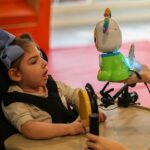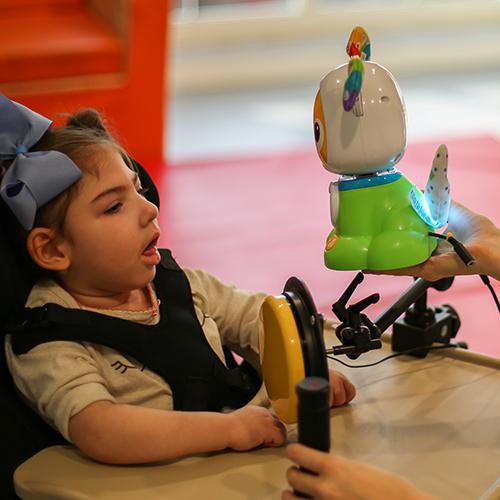Starting occupational therapy for the first time can be an exciting and beneficial experience for both the child and parent. The first session is all about understanding your child’s unique needs and establishing a relationship with the therapist. Here’s what you can expect:
Initial assessment:
The first session of occupational therapy in Dubai typically begins with an assessment. The therapist will ask about your child’s medical history, developmental milestones, and any specific concerns you may have. This assessment helps the therapist understand your child’s strengths and challenges, as well as their unique needs. Information about school performance, social interactions, and sensory preferences may also be discussed to get a complete picture of the child’s situation.
Observation of the child:
During the first session, the therapist will observe your child’s movements, coordination, and overall behavior. This could involve simple activities like drawing, building with blocks, or engaging in play. By watching how your child interacts with various tasks, the therapist can identify areas of difficulty, such as fine motor challenges, sensory processing issues, or struggles with focus and attention. This observation also provides insight into how the child responds to different environments and stimuli.
Setting goals and planning treatment:
Based on the information gathered, the therapist will start to develop a personalized treatment plan. The therapist will discuss the goals of therapy, which may focus on improving motor skills, sensory processing, or daily living skills, depending on the child’s needs. These goals will be set collaboratively, taking into account your child’s interests, strengths, and challenges. A realistic plan will be made to guide future sessions, ensuring progress is measurable and achievable.
Active participation and interaction:
During the session, the therapist will likely engage with your child in structured play and activities. These could include exercises that challenge fine motor skills, hand-eye coordination, or social interactions. Your child will be encouraged to participate actively, as therapy is most effective when children are engaged in the process. The therapist may also provide prompts or assist with tasks to help your child develop their skills.
Communication and feedback:
At the end of the session, the therapist will provide feedback on your child’s progress and areas that still need work. They will offer advice on how you can support your child’s development at home, such as recommending specific exercises or strategies for use in daily activities. Communication is key in ensuring that both you and your child feel confident in the therapy process and the steps moving forward.










More Stories
The Importance Of High-Quality Audio Rental For Live Performances
Skills To Evaluate In Interior Consultants Before Hiring
Tips To Plan A Memorable Pregnancy Photoshoot